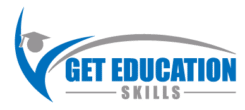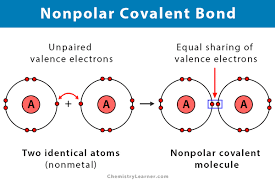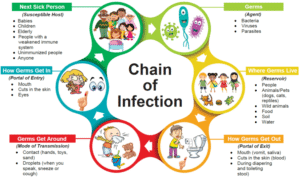What is a dream job? This is a career path that helps a person fulfill their potential, learn new skills, makes them happy, and brings reasonable rewards – both material and spiritual ones. Lots of people chase the idea of finding a dream job to live a happy life. Yet, unfortunately, many of them get lost in other occupations.
When you prepare grounds for a successful search for a dream job, you must consider that your personality is as important to your future employer as your professionalism. In other words, being a guru won’t necessarily make you a perfect match. You must fit in both culturally and professionally.
A successful applicant must have a lot of skills to offer to their future employers in addition to duties and accomplishments. In a customer-oriented economy, careers are being built primarily due to such soft skills as communication, networking, and problem-solving.
Most of the jobs now require your interaction with clients. That means, your personality traits hugely affect your career growth.
So, what are those skills that individuals need to cherish to make it to more than one job interview? How can you build up the fundamentals for those abilities and continue working on their advancement? A trusted resume platform Skillhub.com might have the answers.
Examples of Soft Skills Worth Advancing
Soft skills can be a gift, but they can also be developed. These are the top 9 skills you should focus on first:
Communication Skills
Let’s start with the most obvious skillset. Communication is essential for many professions from doctors to lawyers and from sellers to service providers. It covers a wide range of interactions, including speaking, writing, and listening.

Thanks to this useful group of skills, you can convey your own ideas, persuade the counterpart, and ensure that others get the right message about what’s going on.
Interpersonal Skills
Many people wrongfully confuse these skills with communication abilities. However, interpersonal skills are much more than just speaking. They are what is often called ‘social skills’ – the verbal and nonverbal behaviors and reactions to interactions with other people. They affect your ability to get in touch with different colleagues and clients and help establish rapport with them.
Organizational Skills
The ability to self-discipline and organize affects individuals’ perception of duties and responsibilities in their career field. For example, those who tend to have things planned, end up being a lot more satisfied with their work-life balance. Those who struggle to organize their time and communications may find it hard to complete projects on time.
Problem-Solving
If you want to excel in your job search, make sure your resume reflects how great you are at problem-solving. No one expects automation of all processes from you. On the contrary, this skill mostly refers to your ability to handle situations requiring outside-the-box thinking and conflict management skills. Prove that and you’ll be the first to employ.
Self-Confidence
Everyone’s looking for a professional to have their stuff handled. Being one doesn’t mean having a Ph.D. certificate. Your education often has very little to do with the ability to sound confident and having a belief in your abilities and strengths.
A person with a bachelor’s high school diploma has more chances to land great positions compared to a super-educated individual who lacks self-confidence. Do work on this skill to make a good impression.
Adaptability
Another great soft skill that will help you work stress-free is adaptability. If you are already prepared to face challenges and adapt to them, high chances are that you’ll thrive in any environment. People who tend to stick with routine are too resistant to changes. Their success in career may be clouded.
Integrity
People who can brag that integrity is their key skill are known to stand by their beliefs and values. That doesn’t mean they don’t listen to criticism. This skill is rather about owning up to errors and flaws and telling the truth regardless of the challenges that follow. In this way, integrity helps to build a good reputation while preserving advancement opportunities.
Work Ethic
Work ethic is basically a determination to work hard and do whatever it takes to achieve corporate goals and meet client demands. It often includes dependability, discipline, decency, responsibility, and other personal traits that make people a better version of themselves.
Leadership
Leadership is indeed the ability to lead people. However, it’s appreciated if it encourages positive changes in people and makes them perform in their dream job more passionately. At the same time, leaders have to respect employees’ personal space and work-life balance. Leaders are those who motivate others to apply the best of their skills and achieve strategic goals.
Read Also: 5 Ways To Increase Your Business Career Prospects

How to Advance Your Soft Skills
Soft skills can be taught, and that’s good news. Of course, in this case, the approach to learning needs to be different. For example, you should not only attend classes but also learn from other people by observing them.
This is a fun part: you are single-handedly responsible for growing a leader or a communicator inside of you. The more you work on it, the easier it gets. So, here is what you can do to make a recruiter want to hire you:
- Fight your fear. If you don’t feel that you are quick to adapt, it doesn’t mean you lack adaptability. To other people, you may be a role model in terms of flexibility and adaptability. We often tend to undersell our achievements and skills.
- Observe other people. Make sure you have someone to live up to if you have a specific goal in soft skills learning. Compare yourself with the best, and you’ll achieve perfection quite soon.
- Ask for feedback. We can’t always evaluate success without the help of other people. The best way to get it is to ask them directly. Their feedback is often very much helpful when it comes to understanding your weaknesses and working on the gaps.
- Be active. Soft skills are trained faster if you network with people and become an active listener. Organize your time, work well with others, go through challenging situations with your head up. Soon, you’ll notice that you’ve become a lot more than just an industry expert.








